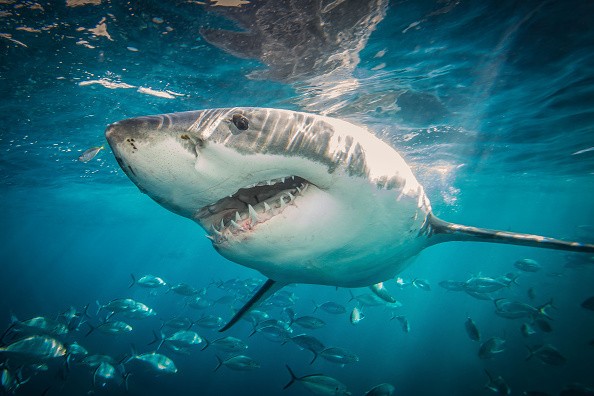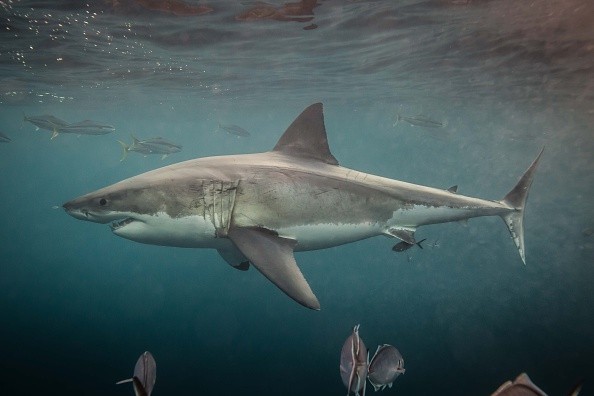On Saturday (June 26) morning, a great white shark ( 6- to 8-foot-long) bit the right leg of a man, 35, body-boarding off Grey Whale Cove State Beach in San Mateo County, California.

The Incident
Though the bite was "serious," the man was able to find his way to shore, Bay Area news site SFist reported. There, a fisherman whose name is Thomas Masotta heard the injured man screaming for help; Masotta formed a tourniquet with straps from his backpack and then called the officials, Tracking Sharks reported.
According to the informational website TrackingSharks.com, this is the number 39 shark attack bite in 2021 worldwide and the 20th in the United States. It's the only known report of a great white shark bite in California; most of the U.S. attacks took place in Florida (14) and Hawaii (five).
The five attacks that were deadly happened outside of the U.S. This great white shark appears to have bitten down on the victim's leg before letting go of its grip, something a shark might do when it notices the human is not its choice of prey, Live Science previously reported. Paramedics took the bitten man to the trauma unit of San Francisco General Hospital, TrackingSharks reported.
Great White Shark
Though Cal Fire made a tweet that the man was initially in "serious condition," he was discharged from the hospital that same day, said TrackingSharks. The shark that bit the man this weekend was possibly from a distinctive population of great whites that inhabit off the U.S. West Coast.
Though great white sharks are seen across the world, they are more concentrated off South Africa, the North Atlantic, Australia/New Zealand, and Northeastern Pacific, according to an ocean conservation organization, Oceana.
The West Coast great whites live in a secluded population that assembles off the coast of California and Guadalupe Island, which is about 240 kilometers (150 miles) off the west coast of Baja California, Mexico, said Oceana. The great white shark (Carcharodon carcharias), is also called the white pointer, white shark, or simply great white.

Pacific Gyre
As per Oceana, these animals spend half of the year around the California coast and the remaining half migrating far offshore close to what is referred to as the Pacific Gyre (likely to feed or reproduce) and at times to the Hawaiian archipelago.
Though such attacks are frightening, they are uncommon and losing your life because of one is even less common.
In fact, during an average human's lifetime, their chances of death from a shark attack are 1 in 3.75 million, as per the University of Florida's International Shark Attack File (IFAS). Compare that with a lifetime chances of death from a car accident, which is 1 in 84, IFAS said.
Related Article: Great Whites in California Now Reaching Healthier Numbers
For more news, updates about great white sharks and similar topics don't forget to follow Nature World News!
© 2025 NatureWorldNews.com All rights reserved. Do not reproduce without permission.





